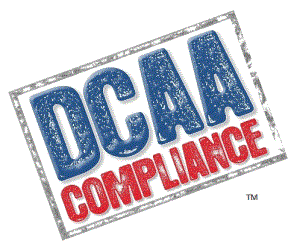Looking at DCAA’s Contract Audit Manual one would walk away with the impression that a contractor needs an accounting division with a staff of at least several people to be fully compliant: A Board of Directors, CEO, CFO, Controller, Accounts Payable Technician, Payroll Technician, to name a few of the positions DCAA appears to assume are present in a compliant contractor (don’t get me started on Internal Auditor).
Many of my clients are limited to a bookkeeper and an owner acting as CFO. Quite a few of my clients do not have the bookkeeper.
Well, what is the answer?
The trick is to think of these roles as functions and not individuals. Almost all internal controls can be minimally addressed by two people assuming the necessary functions.
It also get you started on the importance of internal controls. The FBI estimates that thirty to fifty percent of all small business failures arise out of embezzlement. I will tell you that the vast number of embezzlements can be stopped dead in their tracks by a few simple internal controls such as someone else looking at the checking account each month.
Here is the example. The person writing the checks (acting as the Accounts Payable Technician) presents them to someone else for signature (acting as the CFO). Each month, the CFO reports the bank reconciliation to the Board during their monthly financial meeting making all transactions available for the Board to review.
Another variation combines the AP and CFO function into a single individual and the report to the Board is more through (or even to an outside CPA).
I have even seem small organizations that being all checks over a certain amount to the Board for signature.
The functions are described in the company’s polices and procedures. This also allows for easy growth without heavy rewriting after time you add a position.
